Market Analysis
Feed Antioxidants Market (Global, 2024)
Introduction
The Feed Antioxidants Market is poised to play a crucial role in the evolving landscape of animal nutrition and health, driven by the increasing awareness of the benefits of antioxidants in livestock and pet feed. As the demand for high-quality animal products continues to rise, the incorporation of feed antioxidants has become essential in enhancing the shelf life of feed, improving animal health, and optimizing growth performance. These compounds, which help mitigate oxidative stress and prevent the degradation of feed ingredients, are gaining traction among livestock producers and pet food manufacturers alike. The market is characterized by a diverse range of products, including natural and synthetic antioxidants, each offering unique advantages tailored to specific animal needs. Furthermore, the growing trend towards sustainable and organic farming practices is influencing the development and adoption of natural feed antioxidants, reflecting a broader shift towards health-conscious and environmentally friendly solutions in the agricultural sector. As stakeholders navigate this dynamic market, understanding the key drivers, challenges, and opportunities will be essential for strategic decision-making and long-term success.
PESTLE Analysis
- Political
- In 2024, the Feed Antioxidants Market is influenced by various political factors, including government regulations aimed at ensuring food safety and animal health. The European Union has implemented strict regulations under the Feed Additives Regulation (EU) No 1831/2003, which governs the use of feed additives, including antioxidants. Compliance with these regulations requires manufacturers to invest approximately €1.5 million annually in research and development to meet safety standards and obtain necessary approvals.
- Economic
- The economic landscape for the Feed Antioxidants Market in 2024 is shaped by fluctuating commodity prices and the overall health of the agricultural sector. In 2023, the global feed production reached 1.2 billion metric tons, with feed costs accounting for about 60% of total livestock production costs. This high percentage emphasizes the need for cost-effective feed solutions, including antioxidants, which can enhance feed efficiency and reduce overall costs by up to 10% in livestock operations.
- Social
- Consumer awareness regarding animal welfare and the quality of animal products is rising in 2024, leading to increased demand for high-quality feed additives. A survey conducted in early 2024 indicated that 72% of consumers are willing to pay up to 15% more for products derived from animals fed with high-quality feed, including antioxidants. This shift in consumer preferences is driving manufacturers to invest in better feed formulations that include antioxidants to meet market demands.
- Technological
- Technological advancements are playing a crucial role in the Feed Antioxidants Market, particularly in the development of new formulations and delivery systems. In 2024, the adoption of precision nutrition technologies is expected to increase, with an estimated 25% of feed manufacturers utilizing data analytics to optimize feed formulations. This technological shift allows for more effective use of antioxidants, improving their efficacy and reducing waste in feed production.
- Legal
- Legal factors affecting the Feed Antioxidants Market in 2024 include compliance with international trade agreements and local regulations. The Codex Alimentarius, which sets international food standards, has established guidelines for the use of feed additives, including antioxidants. Companies must adhere to these guidelines, which can involve legal costs averaging around $200,000 per year for compliance and certification processes, impacting their operational budgets.
- Environmental
- Environmental concerns are increasingly influencing the Feed Antioxidants Market, particularly regarding sustainability and the reduction of carbon footprints in livestock production. In 2024, it is estimated that the livestock sector contributes approximately 14.5% of global greenhouse gas emissions. As a result, there is a growing emphasis on using antioxidants that can improve feed efficiency and reduce methane emissions, with some studies indicating potential reductions of up to 20% in emissions when antioxidants are included in feed formulations.
Porter's Five Forces
- Threat of New Entrants
- Medium - The Feed Antioxidants Market in 2024 presents a moderate threat of new entrants. While the market has potential for growth due to increasing awareness of animal health and nutrition, the presence of established players with strong brand loyalty and distribution networks creates barriers for new companies. Additionally, regulatory requirements and the need for significant investment in research and development can deter new entrants.
- Bargaining Power of Suppliers
- Low - Suppliers in the Feed Antioxidants Market have low bargaining power. The market is characterized by a wide range of raw materials and ingredients that can be sourced from multiple suppliers. This abundance of options allows manufacturers to switch suppliers easily, reducing the influence any single supplier can exert over pricing and terms.
- Bargaining Power of Buyers
- High - Buyers in the Feed Antioxidants Market hold significant bargaining power. With numerous alternatives available, buyers can easily compare products and prices, leading to increased competition among suppliers. Additionally, the growing demand for high-quality feed additives gives buyers leverage to negotiate better terms and prices, further enhancing their power in the market.
- Threat of Substitutes
- Medium - The threat of substitutes in the Feed Antioxidants Market is moderate. While there are alternative products available that can serve similar functions, such as natural antioxidants and other feed additives, the unique benefits provided by specialized feed antioxidants can limit the extent of substitution. However, as consumers become more health-conscious, the appeal of natural alternatives may increase.
- Competitive Rivalry
- High - Competitive rivalry in the Feed Antioxidants Market is high. The market is populated by several key players who are constantly innovating and improving their product offerings to gain market share. This intense competition drives companies to invest in marketing, research, and development, leading to price wars and increased pressure on profit margins.
SWOT Analysis
Strengths
- Increasing awareness of animal health and nutrition among livestock producers.
- Growing demand for high-quality animal products, driving the need for feed antioxidants.
- Established regulatory frameworks supporting the use of antioxidants in animal feed.
Weaknesses
- High costs associated with the development and production of feed antioxidants.
- Limited consumer awareness regarding the benefits of antioxidants in animal feed.
- Potential side effects or negative perceptions related to synthetic antioxidants.
Opportunities
- Expansion of the organic and natural feed market, creating demand for natural antioxidants.
- Technological advancements in antioxidant formulations and delivery systems.
- Rising global meat consumption, particularly in developing regions, boosting feed demand.
Threats
- Stringent regulations and compliance requirements affecting product development.
- Competition from alternative feed additives and substitutes.
- Economic fluctuations impacting livestock production and feed purchasing power.
Summary
The Feed Antioxidants Market in 2024 is characterized by strong demand driven by heightened awareness of animal health and quality product requirements. However, challenges such as high production costs and limited consumer knowledge present obstacles. Opportunities lie in the growth of organic feed and technological advancements, while threats from regulatory pressures and competition from alternative additives could impact market dynamics. Strategic focus on education and innovation will be crucial for stakeholders to navigate this evolving landscape.


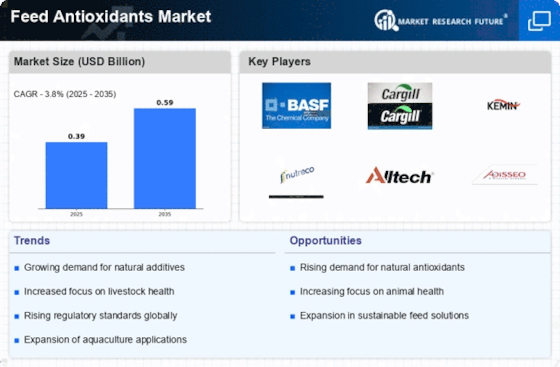
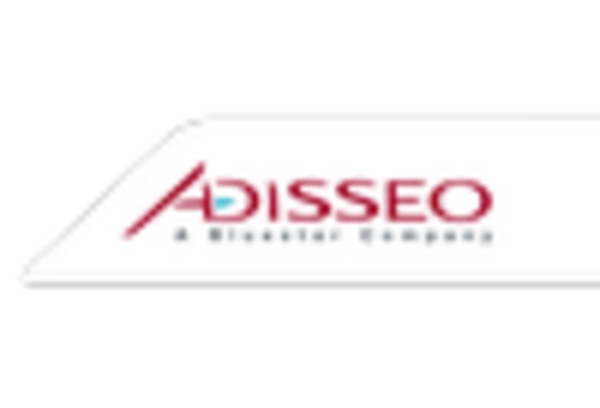
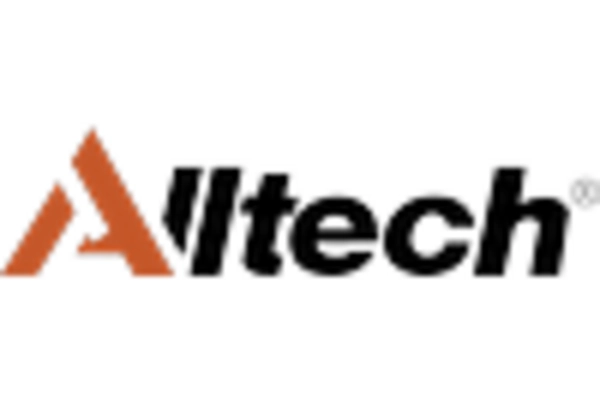

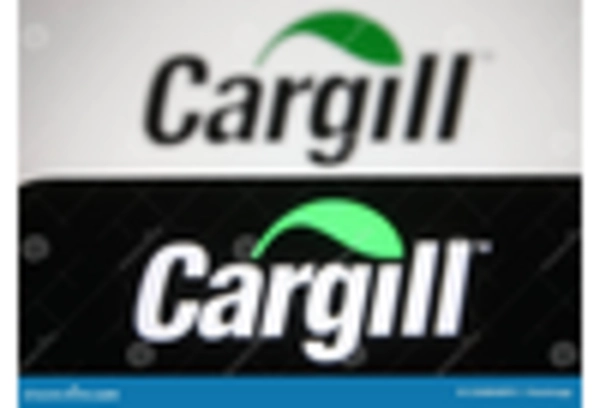
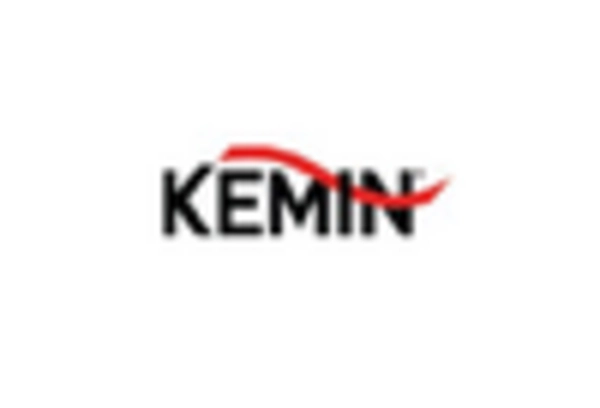
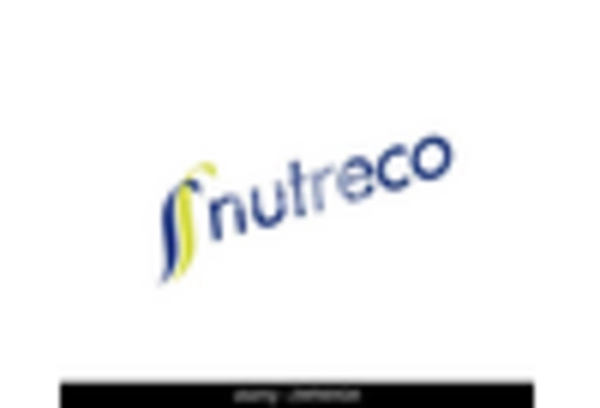










Leave a Comment